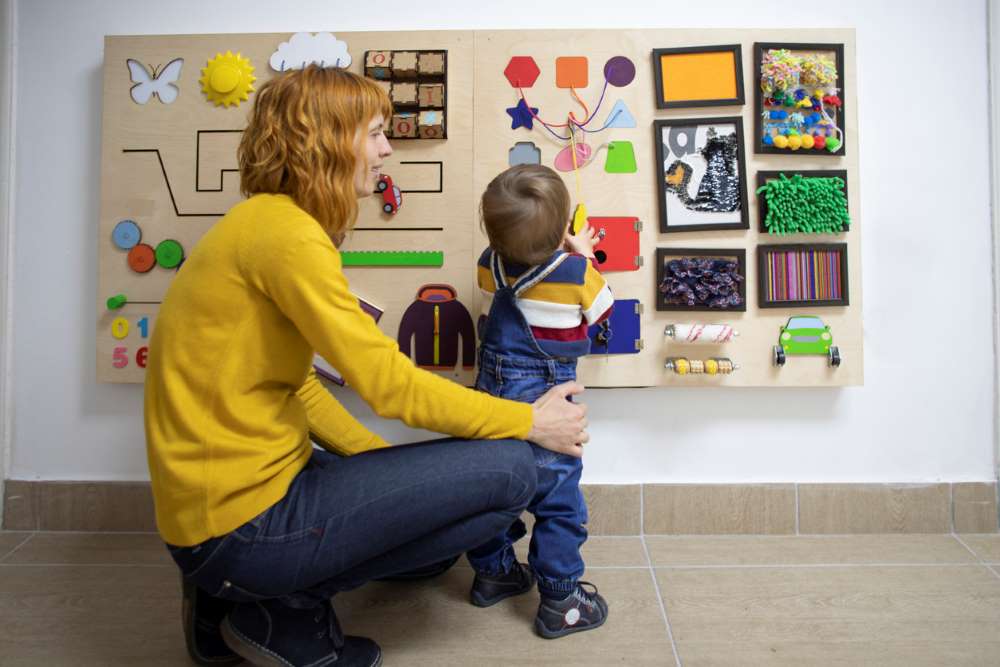
Each milestone your child reaches is part of their child development — their first step, the first time they say “dada,” naming colors and hopping up and down are all milestones. The early years of their lives are especially crucial for their overall health and development.
When a child is developing healthily, you are helping them meet their social, educational, and emotional needs no matter their ability. As they’re growing, you’ll want to make sure you provide age-appropriate activities for them so they can hit those milestones.
Here are six ways you can encourage age-appropriate development in your children, no matter their age.
1. Read to Your Children
Beginning when your child is born, read to them. Reading is an essential and fundamental human skill. Even when your child is a toddler, they hear the words you say and begin to understand them.
Reading skills will help your child through any developmental milestone. It prepares them for academic achievement, improves their language learning and speaking abilities, increases their attention span and improves their creative capacities.
Your children will realize the importance of books and reading when you take the time to read them stories.
2. Allow Them to Make Choices
Whenever possible, offer your kids choices. At a young age, your child can choose between things like which toy to play with or what type of fruit they want to eat as a snack. Encourage your child to think for themselves.
This helps a child develop independence. When you do offer them choices, provide positive options. As your child continues to grow and develop cognitively, they will have a knowledgeable background of types of choices that will positively benefit them.
3. Let Your Kids Play
Play is an essential part of your child’s development. When your child plays, they are in a safe space to use their imagination, express their childish nature and burn off some of their vibrant energy. Kids naturally learn by having fun.
Not all play is the same, however. There are three main types of play that you can encourage your child to engage in, which include:
-
Social play: During social play, children interact with other children or adults. This is commonly seen on playgrounds where you may push your child on a swing or your child may use a teeter-totter with another child. Kids learn to share and get along with others through social interactions.
-
Independent play: As it suggests, independent play is when your child plays by themselves, which may include putting together puzzles, reading a book, playing a video game or using toys to create an acted-out scenario.
-
Guided play: When adults suggest play, they want the child to learn a specific goal or outcome through it. You can do this by designing a play space for your child or questioning and commenting on what they are already doing during free play.
No matter what type of play your child engages in, it is essential for their development. Try to use age-appropriate toys and equipment that will challenge your child to learn.
4. Offer Alternatives to Unwanted Behavior
There’s no doubt that your child will behave in a way you disapprove of — part of development is learning what is right and wrong. Parents often go the route of punishing their child. While punishment is primarily up to the parent’s preferences, offering an alternative may be more useful to curb unwanted behavior.
When your child does something wrong, show them what they should have done instead, and keep timeouts brief. Guide your children to the right choices.
5. Limit Screen Time
Devices with screens have become an object that nearly any child will divert their attention to. Too much screen time and your child’s development may be hindered, especially for younger children, aged birth to five years.
It’s easy to hold your child’s attention by playing a video for them or turning on the television. It helps you complete tasks at home without your child creating distractions or more of a mess. However, the recommended screen time for children up to five years old is only one hour per day — and the content on the screen should be educational.
Screen time takes away from in-person learning opportunities, and the constant bright blue light could compromise development at any age.
6. Be Selective With What Your Child Watches
If you decide to allow your child an amount of screen time, be cautious of what they’re watching. There is a reason why movies and television shows have a rating.
Choose programs that are age-appropriate and have language that matches the needs of your children. Educational programs are best for children as they can learn something about culture that isn’t in their own community. Encourage your children to limit their time watching television and read books or play a game instead.
Watch Your Children Grow
As a parent, of course you’re going to be there with your children as they grow! Encourage them to try new things as they get older so they can reach those precious milestones.
All children develop differently and at different rates. Trust yourself as to what is age-appropriate, and your child will be well on their way to growing into a happy and healthy kid.



























